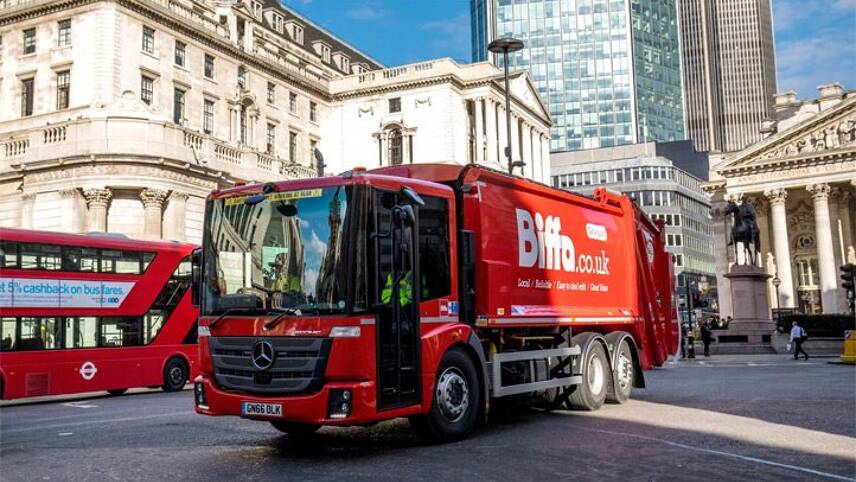Register for free and continue reading
Join our growing army of changemakers and get unlimited access to our premium content

According to Biffa
Biffa, which has reduced its carbon emissions by 65% since 2002, has launched its new “Resourceful, Responsible” strategy that simultaneously aims to improve recycling efforts for customers while slashing emissions.
The strategy features commitments to reduce emissions by 50% by 2030 through increased recycling and diversion from landfill. In the medium-term these targets will be facilitated by increasing collection route efficiency by 20%, phasing out of fossil-fuelled collection vehicles in favour of electric alternatives and installing solar farms on closed and restored landfill sites owned by Biffa.
According to Biffa, improving recycling efforts could unlock up to £1.25bn in green economy infrastructure. This will include the company’s plans to quadruple plastic recycling capability and develop Energy from Waste (EfW) infrastructure.
Biffa’s chief executive Michael Topham said: “’Resourceful, Responsible’ fully supports our strategic growth plans and long-term vision, defining the important role Biffa can play in delivering more sustainable solutions to help combat the UK’s waste challenge.
“I am very proud of the great progress that we, and the wider industry, have made in recent years to grow recycling levels and drive significant reduction in CO2 emissions, but we recognise there is much more to do. ‘Resourceful, Responsible’ is an ambitious but deliverable strategy which is based on proven technologies and is supported by our previously outlined investment plans.”
EfW milestone
While Biffa operates various anaerobic digestion facilities in the UK, the company has, according to LetsRecycle, traditionally exported much of the 1.7 million tonnes of residual waste it collects that is suitable for EfW abroad.
Biffa has now achieved financial close for an EfW plant in Leicestershire. The Newhurst plant will be its first EfW incinerator and is expected to become operational in 2023.
A 400,000 tonne-per-annum EfW capacity plant is also being mooted for the Protos energy park near Ellesmere Port in Cheshire, but reports suggest this has been delayed.
The Protos plant could also host the UK’s first industrial-scale facility capable of converting waste plastics into hydrogen. Waste2Tricity is set to apply for planning permission to build the £7m facility later this spring, after parenting with developer Peel Environmental, which has agreed to host it on its Protos site near Ellesmere Port.
The proposed facility will span 54 acres and have the capacity to treat up to 25 tonnes of waste plastic each day, generating one tonne of hydrogen and 28MWh of electricity in the process. Waste2Tricity claims that it would be capable of processing almost all kinds of plastics, including packaging, rigid plastics and used tyres.
Matt Mace


Please login or Register to leave a comment.